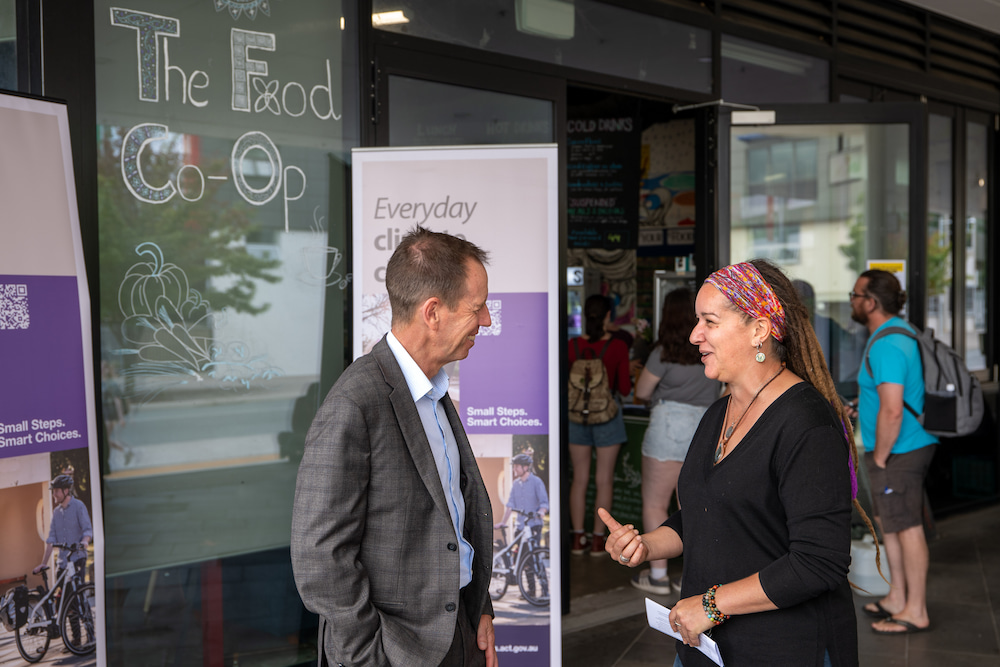The 2024 round of the ACT Government’s Community Zero Emissions Grants program opened today, and one of last year’s recipients could not be more pleased with the funding.
“This grant has been really wonderful for us, and we’re very appreciative of it,” said Lucaya Rich, chairperson of the Food Co-Op at ANU.
The program funds projects by not-for-profit community groups and locals that support the ACT’s transition to net zero emissions by 2045 or increase community resilience to climate change.
“We really want to empower the community to be part of the solution,” Shane Rattenbury, ACT Minister for Water, Energy and Emissions Reduction, said. “Too often, on the issue of climate change, people feel overwhelmed by the scale of it … and they don’t now where to start.”
That grant, Ms Rich said, is “totally in line with what we’re doing here”. The Co-Op, the oldest food co-operative in Australia, is dedicated to “sustainability, reducing our impact on the planet, eating more sustainably, and living more sustainably… It has really helped us to continue striving forward with our mission of sharing that with the general public.”
The Food Co-Op received a $15,600 grant in the 2023 round to convert their café kitchen from gas to electric, install all-induction cookware.
“It’s made it a much safer working environment for our staff and our volunteers,” Ms Rich said.
It also reduced the Co-Op’s bills. “What we were paying for in gas is not what we’re paying for in power,” Ms Rich said.
The Co-Op also used the grant to run low-waste cooking workshops for its members and the public, with practical tips on how to save some of the 7.6 million tonnes of food Australians throw out each year.
“It’s been really wonderful teaching people in the community how to manage their waste, and use the waste that they do have, rather than sending it off to landfills,” Ms Rich said.
This year’s round is the seventh round; since 2017, the program has supported 35 projects. Last year, the government spent more than $155,200 on six projects. Besides the Food Co-op, the government funded the Canberra Environment Centre’s climate resilience and adaptation education program; Asthma Australia’s campaign to help improve health outcomes for people affected by poor air quality; St Clare’s College’s paddock-to-plate food production program; an onsite mulcher to increase composting production at Canberra City Farm; and the Australian National University’s worm farm and educational workshops on the benefits of vermicomposting.
In previous years, too, there have been ride to school days, or art groups communicating about climate issues – approaches organisations can take that the government can’t.
“Over the years, we’ve seen a real diversity of ideas,” Mr Rattenbury said. The program “unleashes creativity, gets people involved, gives them the avenue to bring their idea forward, and inspires others… It gives them confidence that there are solutions … that we can make change and really practical contributions.”
Funding of up to $50,000 per single application and up to $75,000 per joint application is available.
Sometimes groups apply for grants as small as $4,500. It is, Mr Rattenbury said, “a space for innovation, for people to trial new ideas”.
Applications close at 5pm on 4 April.
Apply for a grant by visiting the Everyday Climate Choices website.



